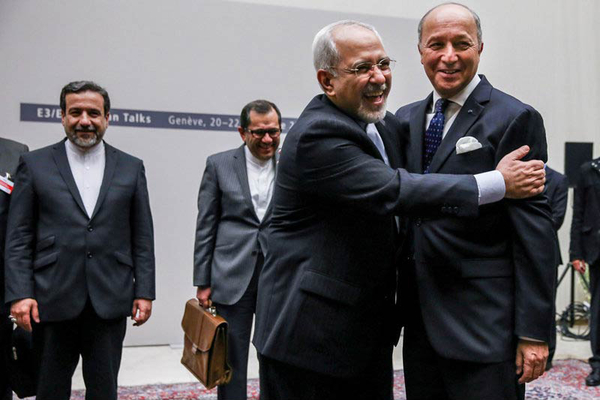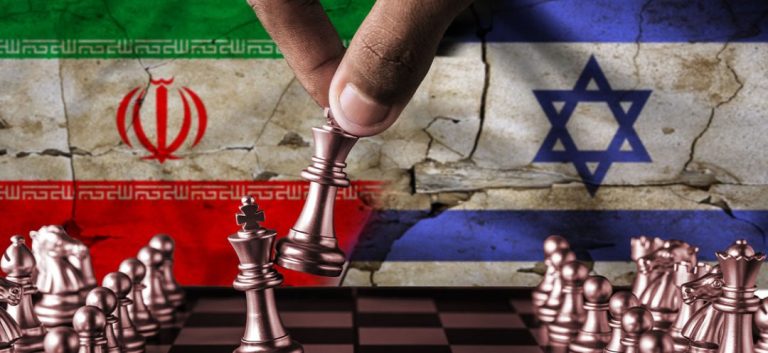Enduring Misguided Western Policies . . . Again
Eyad Abu Shakra/Asharq Al Awsat
Monday, 27 Apr, 2015
When, in 2003, the US and the UK decided to attack Iraq, bring down its regime, destroy its security and military apparatuses and cleanse its political life of what remained of the Ba’ath Party, their plan was met with reservations from the international community.
The reason wasn’t because non-supportive countries were enamored with Baghdad’s dictatorship, or because they were so keen to maintain sectarian privileges here or there. No, they were simply worried that there were no plans for “the day after.” No plans for the post-Saddam Iraq, or, rather, “future Iraq.”
However, as John Steinbeck beautifully put it, “You know how advice is. You only want it if it agrees with what you wanted to do anyway.”
The Anglo–American conquest, as we all know, went without resistance in the absence of military parity. However, as Iraq began an era of “occupation,” it became clear that the “occupiers” never understood the country and its people, nor did they bother to learn to understand them.
Consequently, everything was changed and overturned, and the country was gifted to Iran which gratefully took it over via its “friends” and petty agents in the form of politicians, mullahs and militiamen. But Iran’s ambitions in Iraq were not limited revenge against Saddam, his regime and political constituency. It had an expansionist regional master-plan that its leadership was in a hurry to implement.
Here the contribution of the Syrian regime came in quite handy. Its task was to facilitate the movement of extremist Sunni terrorists into Iraq in order to attack American and Shi’ite targets, thus achieving two desired objectives:
First, push the Americans to speed up their military withdrawal, leaving Iraq an “Iranian” territory.
Second, enhance Shi’ite sectarian militarism, and provide an excuse for strengthening the might of militias linked to and controlled by Iran’s Islamic Revolutionary Guard Corps.
And this is exactly what happened.
The Syrian regime took over the job of recruiting and sponsoring what are today described as “takfirists” and “terrorists” and helped them infiltrate Iraqi borders. In addition to the well-known case of the Abu Qa’qa’ (Mahmoud Kul-Agassi) and the Fatah Al-Islam extremist splinter group, more information is now coming to light about how Damascus has turned a blind eye to the emergence of some extremist organizations, and how it was active in establishing others. The latter were established and sponsored both inside Syria and in Lebanon where they were entrusted to undermine the popularity of the Future Movement by outbidding it with Islamist radical rhetoric within the frustrated Lebanese Sunni population.
Furthermore, quite well-known too are Iran’s strong ties with the extremist “Islamic Jihad” and the radical wing of Hamas in the Palestinian arena. The irony, however, is that while Iran boasts about its relations with the most radical and extremist Palestinian groups, it has, since the Syrian uprising, fueled a confessional civil war in Syria by accusing similar Syrian radicals of being takfirists and pushing its own sectarian militia—like Lebanon’s Hezbollah, Iraq’s Al-Abbas Brigades, and the Asa’ib Ahl Al-Haq—to fight them.
Still, even the plans of the shrewdest strategists can go wrong, even if one dismisses this as a conspiracy theory, which still makes the Islamic State of Iraq and Syria (ISIS)—now occupying vast areas of Iraq and Syria, and threatening Lebanon and other countries—nothing but an Iranian product, a product that Iran uses to blackmail the West, particularly America.
It is now crystal clear that ISIS has nothing to do with the aspirations of the Syrians and Iraqis and their struggle for liberty and dignity. It does not recognize any priorities in its campaign of murder and devastation, and has no definition of who the “enemy” is. In short, for ISIS, anyone who does not fully accept its discourse and slogan is an “enemy.” For this reason it is causing extreme damage to what should have been its natural support base; it is perpetrating unimaginable human tragedies against the Sunnis of the desert rim of the Fertile Crescent.
In the meantime, as Tehran plans to demean, frustrate and push the Sunni Arabs further and further to despair, the international community seems unfazed, ignoring this plan that is most damaging to both Arab and Muslim countries.
With this said, the international community—specifically Washington—is not required to take sides in the ongoing sectarian conflict, but it is important to remind it that despair begets extremism, and extremism provokes counter-extremism.
President Barack Obama recently welcomed Iraqi Premier Haider Al-Abadi to the US, and asked the Baghdad government on more than one occasion to be aware of the negative impact of the sectarian extremism of the Shi’ite pro-government militias in the war against ISIS.
However, Washington’s position has not been decisive enough for obvious reasons: first and foremost being Obama’s keenness not to antagonize Iran, whom he dearly regards as America’s future “partner,” if not regional ally. Realizing this fact, the Iranian leadership is exploiting what remains of Obama’s term in the White House to achieve maximum gains. It is going ahead with expanding its sphere of influence from the Gulf of Aden and the Bab El-Mandeb strait to the shores of the eastern Mediterranean and the Turkish and Israeli borders.
Faced with such a scenario, other players in the Middle East do not feel they have to simply accept Obama’s risky ventures.
Benjamin Netanyahu’s Israel, assured by its traditional support and unhappy about the White House‘s unilateral apportioning of regional influence, has decided to go on the offensive.
Recep Tayyip Erdoğan’s Turkey has been expressing its reservations but has so far preferred to adopt maneuvering and indirect messages.
As for the Arabs, they have conveyed their reservations with their traditionally “tactful” Arab diplomacy, but without any illusions; and this time around, without betting on an American administration that seems on its way to making the same mistakes of 2003 by not heeding the advice of its friends.
It is likely that political analysts in Washington feel the current Arab discomfort, and realize that it will not express itself hastily. They also know that Washington may have to pay the price—perhaps not in the distant future—for its miscalculations in the region.
And it could be a heavy price indeed.




















